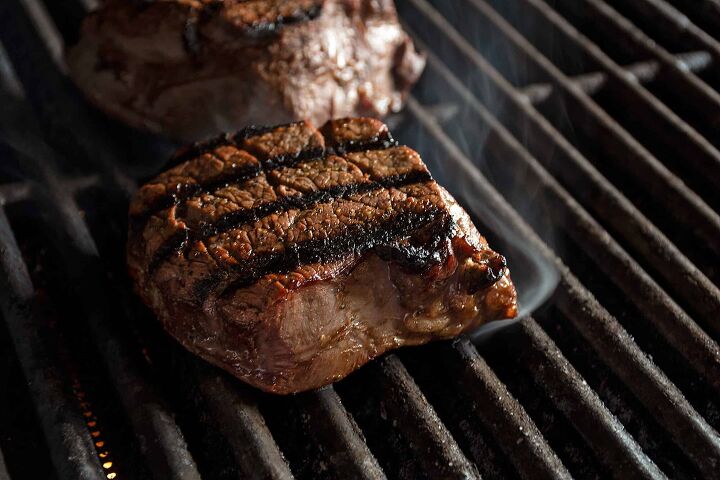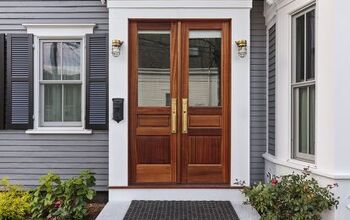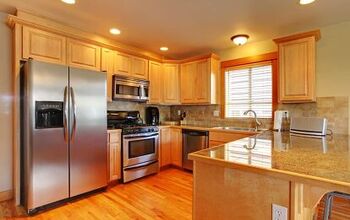What Are The Disadvantages Of An Infrared Grill?

It seems like just about every other year, a new way of grilling gets invented. We’ve seen air fryers, George Foreman grills, and now, people are talking up infrared grills. Infrared grills are known for cutting down on burns, being great at searing meat, and also don’t involve many of the problems that traditional grills have. But are they all they’re cracked up to be? Not quite…
Infrared grills are a healthy option, but they can be prohibitively expensive. Due to the way they heat up, they have a tendency to burn meat. Additionally, there are many major concerns when it comes to their durability and versatility. Infrared grills are best considered to be a niche grill choice.
If you are a big grill fan like I am, you’re always going to be curious about the new cooking methods that pop up on the market. So, what’s the deal with these grills? Are they actually worth the price tag? I decided to do some digging to find out.
Do You Need Outdoor Kitchen Installation Services?
Get free, zero-commitment quotes from pro contractors near you.

What is an Infrared Grill and How do They Work?
Infrared grills, also known as IR grills, use infrared radiation to cook your food. To do this, a regular gas grill gets started up, then has a specialized plate placed on top as a cooktop. The heatwaves from the grill get spread through the plate, which distributes the heat evenly throughout the plate.
As opposed to producing just hot air, an infrared grill produces infrared waves. These waves are what heat up the surface of an object, such as a slab of meat. Since the plates on an infrared grill are designed to conduct heat, these grills have a notoriously fast heat-up time.
These types of grills work similar to the sun. The energy of the sun consists of roughly 50% infrared, which is why roadways are very hot to the touch in the summer, but we cannot visibly see the heating process.
Why Are The Advantages Of An Infrared Grill?
You don’t end up being a trendy piece of equipment without some benefits being offered. This is true for infrared gas grills, too. Some of the reasons why they are so popular include:
- They are super fast when it comes to heating. A typical infrared grill will be able to heat up to 700 degrees within seven minutes. That’s a major improvement when it comes to regular cooking methods. While a conventional gas grill may take about 10 minutes to heat up, an infrared grill takes only two to three minutes.
- They are able to reach much higher temperatures. In addition to heating up fast, infrared grills can also reach higher temperatures. A good quality conventional grill can reach about 700 to 750 degrees Fahrenheit, but an infrared grill can hit up to 1200 degrees Fahrenheit. This helps to maintain the juiciness of the meat you are cooking because the hotter it is, the quicker it sears, and the less juice lost.
- Yet, they can also cook food “low and slow” if you choose the right model. If you get an upscale IR grill, the amount of control that you have on your temperature can be downright jaw-dropping.
- The heat is evenly spread but can reach sear-level temperatures. For chefs, this means no flare-ups and no sudden burns. It’s a perfect machine for searing steak.
- Most are fairly easy to clean. This can vary from brand to brand, but it’s generally accepted as true. Many models can get cleaned up with a simple wipe of a wet sponge.
- They are an energy efficient alternative. A shorter heat-up time, higher temperatures, and quicker cooking time means that less energy is used. In fact, an infrared grill is at least twice as fast as conventional gas grills, resulting in the use of 50% less gas. Opting for an infrared grill can greatly reduce your carbon footprint.
What Are The Disadvantages Of An Infrared Grill?
Though IR grills might sound like a chef’s dream come true, the fact is they still have a ton of drawbacks. These issues below can make most chefs rethink their decision to buy an infrared grill:
- Most infrared grills heat up too quickly, which can lead to food that gets burned. Although the high temperatures they can reach may be an advantage, if you are the type of person who enjoys taking their time with food, you may find IR grills to be a little too much. The risk of burning food is fairly high, with many IR grill cooks reporting a sharp learning curve when it comes to food prep.
- There’s a lot less versatility with most infrared grills. A typical infrared grill doesn’t have that wide a temperature range and also won’t have much control over the speed at which food gets cooked. This means that certain cuts of meat as well as certain types of meat won’t pair well with this grill.
- Many infrared grills also have a tendency of breaking. The plates on IR grills might look sturdy, but many reviewers claim that they are prone to chipping and cracking. Some reviews also note that these grills are more prone to mechanical failure as well.
- Infrared grills offer little when it comes to compactness and portability. They were originally designed efficiency in commercial kitchens. Though the new IR home grills are smaller, they are still not as light and portable as most gas and charcoal grills on the market.
- If you’re a fan of wood flavor or charcoal flavoring, you’ll be disappointed. This is a personal preference, but it still remains a disadvantage for people who love seeing smoke rings in their BBQ. Since it’s a gas-powered grill, you won’t get that kind of flavoring.
- IR grills are also notoriously expensive when compared to regular gas, coal, and wood-burning grills. So, if you are looking for a grill that will be cheap to work with, this is not going to be it.
How Much Does An Infrared Grill Cost?
While they can offer a great cooking experience, getting an infrared grill comes at a price. As in, these grills are literally famous for being expensive.
At the very low end of grilling options, you can find an infrared grill between $250 to $500. A typical IR gas grill will cost between $800 to $1500. High-end infrared grills tip the scales at upwards of $2,000.
Even if you get it on sale, you will still have to buy gas for it and also potentially buy supplies to maintain it. Repairs on infrared grills are also notably expensive.
Additionally, though you may be able to find a smaller, more portable infrared grill at a better price point, they tend to have a shorter lifespan and limited features. No matter how you look at it, an infrared gas grill is going to be a high-priced, big ticket item.
Is An Infrared Grill Worth The Price?
The jury is still out on this. Though IR grills are known for being status symbols, excellent at searing food, and rapid heating, they have issues. Due to the high risk of burning food and the ultra-high temperatures they can reach, many home chefs find these grills to be too specialized for their tastes.
With that said, much of the IR grill fandom is about very specific cooking styles. If you tend to cook a lot of seared steaks or just prefer mostly “resilient” meats, this could be a good investment. People who tend to love wood-fired flavors or who want to try a wide range of different cooking methods, on the other hand, won’t want one.
Do You Need Outdoor Kitchen Installation Services?
Get free, zero-commitment quotes from pro contractors near you.

Related Questions
How do you clean an infrared grill?
After you’ve cooked your food, burn off any food remains that accumulated and use a metal brush to scrape off the ashes. Coat both the grates and the infrared plates with a light layer of high heat cooking oil after each use. This prevents your grill from rusting and helps keep your grill functional.
Is infrared cooking healthy?
Infrared cooking does use radiation to cook food, but that doesn’t mean it’s unhealthy. The wavelength of infrared rays isn’t short enough to cause damage to the DNA of the food you’re cooking. This means that you won’t have to deal with health issues as a result of IR grilling.
Is it okay to grill using a rusty grate?
Rust is not the best thing to ingest, but if it’s a one-off deal, you probably won’t get sick. However, prolonged use of rusty grates can lead to iron poisoning and food-related sicknesses. If you have a rusty grate, either clean the rust off your grate or get a new grate.
Should I cover my outdoor grill?
Most grills are designed to be hardy in inclement weather, but that doesn’t mean you should push their limits. If you want to keep your grill looking great for years, it’s best to get an outdoor grill cover to protect it when it’s not in use. With that said, you should always have plenty of ventilation while grilling. You should never grill under a covered patio or try to bring your grill indoors.

Ossiana Tepfenhart is an expert writer, focusing on interior design and general home tips. Writing is her life, and it's what she does best. Her interests include art and real estate investments.
More by Ossiana Tepfenhart



























